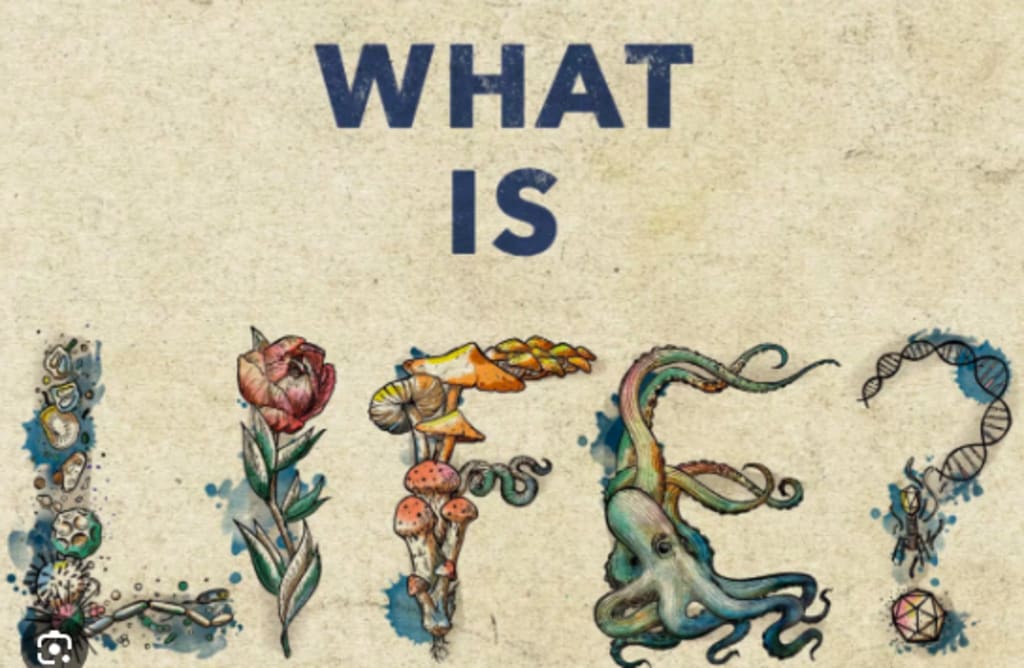The Enigma of Life
An In-Depth Exploration of Existence

Introduction:
Life, the mysterious and intricate phenomenon that pervades our world, has fascinated humanity since the dawn of time. Countless scholars, philosophers, and scientists have grappled with the question of what life truly is, attempting to capture its essence within the confines of human understanding. In this comprehensive article, we embark on a profound journey to unravel the complexities of life, delving into its origins, characteristics, and philosophical implications.
Defining Life:
Defining life in a definitive manner is a formidable challenge, as it encompasses a wide array of forms and manifestations. However, certain fundamental characteristics are often associated with living organisms. These include the ability to grow, develop, and adapt to the environment; the capacity to reproduce and pass on genetic information; the need for energy to sustain vital processes; and the presence of complex biological systems that enable homeostasis, ensuring stability in the face of external changes.
The Origins of Life:
The origins of life remain a subject of intense scientific inquiry. While the exact process by which life emerged on Earth is not yet fully understood, prevailing theories suggest that life arose from a combination of chemical reactions within a conducive environment. The Miller-Urey experiment, conducted in the 1950s, demonstrated that simple organic molecules, such as amino acids, can be synthesized under conditions simulating early Earth. This experiment supports the hypothesis that life may have originated through a gradual process of chemical evolution.
Diversity and Unity:
One of the remarkable aspects of life is its staggering diversity. From the microscopic realms of bacteria and single-celled organisms to the intricate ecosystems of rainforests and coral reefs, the tapestry of life is woven with an astonishing array of species. Each organism, from the smallest microbe to the largest mammal, contributes to the intricate web of life, forming an interconnected network where every element plays a crucial role.
Consciousness and Sentience:
Consciousness and sentience are facets of life that set humans apart from other organisms. Consciousness refers to self-awareness, the ability to perceive and comprehend the world around us, while sentience entails the capacity to experience subjective sensations and emotions. These qualities grant humans a unique perspective and allow for introspection, creativity, and the pursuit of knowledge. The study of consciousness remains a vibrant field, blending neuroscience, philosophy, and psychology in an effort to grasp the nature of subjective experience.
Interdependence and Ecosystems:
Life thrives within complex ecosystems, where organisms engage in intricate relationships and interdependencies. From predator-prey dynamics to symbiotic partnerships, the survival and prosperity of each species are intimately connected to the well-being of others. Ecosystems are characterized by energy flows and nutrient cycles, and disruptions in these delicate balances can have far-reaching consequences. Understanding and preserving biodiversity is crucial for maintaining the health and resilience of ecosystems and safeguarding the fragile equilibrium of life on our planet.
Meaning and Purpose:
Questions regarding the meaning and purpose of life have perplexed humanity throughout history. Various philosophical and religious traditions offer diverse perspectives, attributing purpose to a higher power or emphasizing the importance of individual fulfillment and moral values. For many, meaning emerges from relationships, personal growth, the pursuit of knowledge, artistic expression, and contributing to the betterment of society. The search for meaning is a deeply personal and subjective journey, inviting individuals to explore their own values, passions, and connections with the world.
The Ethical Implications of Life:
Contemplating the nature of life inevitably leads to ethical considerations. Recognizing the inherent value and interconnectedness of all living beings can foster compassion, empathy, and a sense of responsibility toward the environment and other creatures. Ethical frameworks such as animal rights, environmental conservation, and sustainability are grounded in the understanding that life, in all its forms, is worthy of respect and protection.
Conclusion:
Life, a magnificent tapestry interwoven with diversity, interdependence, and profound questions, defies simple definition. Its origins and complexities continue to captivate the human mind, inspiring scientific investigation, philosophical contemplation, and ethical deliberation. As we ponder the enigma of life, let us cultivate curiosity, reverence, and a deep appreciation for the awe-inspiring journey we are fortunate to embark upon.
About the Creator
Nirakar Bhandari
Hello I'm a small writer, help me grow please.
- Thank you <3






Comments
There are no comments for this story
Be the first to respond and start the conversation.